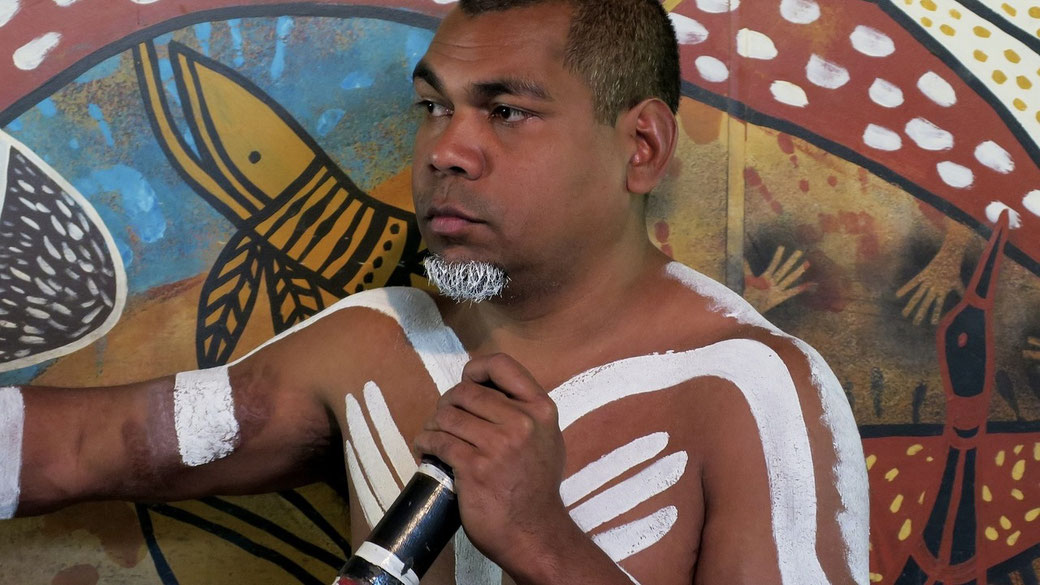Arthur Phillip's front tooth: its surprising role in Australian history

Soon after the First Fleet arrived at Port Jackson on 26 January 1788, Governor Arthur Phillip began looking for ways to build good relations with the local Indigenous peoples.
As the head of the British colonial administration, Phillip knew that some level of working together would be necessary for the survival of the new colony.
The coastal area around Sydney Cove was inhabited by the Eora people, which included the clan of the Gadigal.
However, differences in language and cultural customs separated the British newcomers from the First Nations population, but one physical feature in particular caught their attention and became a way to connect: Arthur Phillip’s missing front tooth.
Cultural Recognition through a Dental Gap
During his early meetings with First Nations men in February 1788, Phillip became aware that the Eora people had a custom of knocking out a front tooth as part of an initiation ritual.
Among young men, the loss of the upper right incisor was a mark of the passage into adulthood.
The rite was carried out during formal ceremonies, where elders used specially prepared tools to remove the tooth in a show of strength and commitment to tradition.
During one of his encounters, Phillip smiled in an attempt to show friendliness, which revealed the gap in his front teeth.
The First Nations men reacted with particular interest. To them, the gap indicated a mark of initiation that seemed to align with their own customs.
Rather than being seen as a foreign outsider, Phillip was momentarily accepted as someone who had undergone a significant rite of passage.
In fact, Phillip had lost the tooth years earlier during a fencing accident in Europe.
At the time, the incident had carried no cultural meaning. However, during early colonial contact, the absence of that tooth gave Phillip an unexpected advantage.
Some later reports say that the moment helped reduce tension during the early days of settlement, as it created something familiar between the two groups.
Phillip’s calm and non-threatening behaviour, when combined with the visual sign of the missing tooth, may have reduced their doubts and allowed him to begin developing careful relationships with individual First Nations men.
Colonial Observers and the Growth of the Story
The earliest detailed references to this encounter appeared in the works of later colonial writers rather than in firsthand accounts.
Watkin Tench, a marine officer in the First Fleet, did not mention the tooth incident directly, but often described Phillip’s careful efforts to earn Indigenous trust through patient and respectful gestures that promoted constructive talks.
Later authors, such as James Bonwick, assembled the meaning of Phillip’s missing tooth from personal stories, missionary reports, and settler accounts.
For example, George Barrington, who was not present during the colony’s first years, added morality-based stories that later writers sometimes linked to broader tales of Indigenous contact.
The tooth incident itself seems to have entered early stories during the nineteenth century.
More recently, historians such as Keith Vincent Smith have revisited the tale to examine how mistaken signals influenced the first stages of interaction.
Phillip’s relationship with local leaders like Bennelong and Colebee grew slowly and took years of careful talks.
However, small incidents, such as the tooth moment, created rare chances for shared understanding. A
ccording to some accounts, Phillip’s status as a fellow initiated man helped lead to Bennelong’s visit to Government House and his trip to England in 1792.
Bennelong himself later spoke warmly of Phillip's gentleness and self-control, especially after Phillip refused to fight back when Willemering speared him in September 1790.
Historical Memory and Symbolism
This story has appeared in school materials, museum exhibits, and history tours as a reminder of how small personal details could influence cross-cultural exchanges.
For First Nations men of the late eighteenth century, identity was shown on the body.
Phillip’s accidental likeness to an initiated man made an impression that mattered in a world where non-verbal signs shaped first meetings.
Similar examples, such as when Bungaree later wore a naval uniform to show support for British authority, show how visual cues were used to bridge cultural gaps.
What do you need help with?
Download ready-to-use digital learning resources
Copyright © History Skills 2014-2025.
Contact via email
With the exception of links to external sites, some historical sources and extracts from specific publications, all content on this website is copyrighted by History Skills. This content may not be copied, republished or redistributed without written permission from the website creator. Please use the Contact page to obtain relevant permission.





